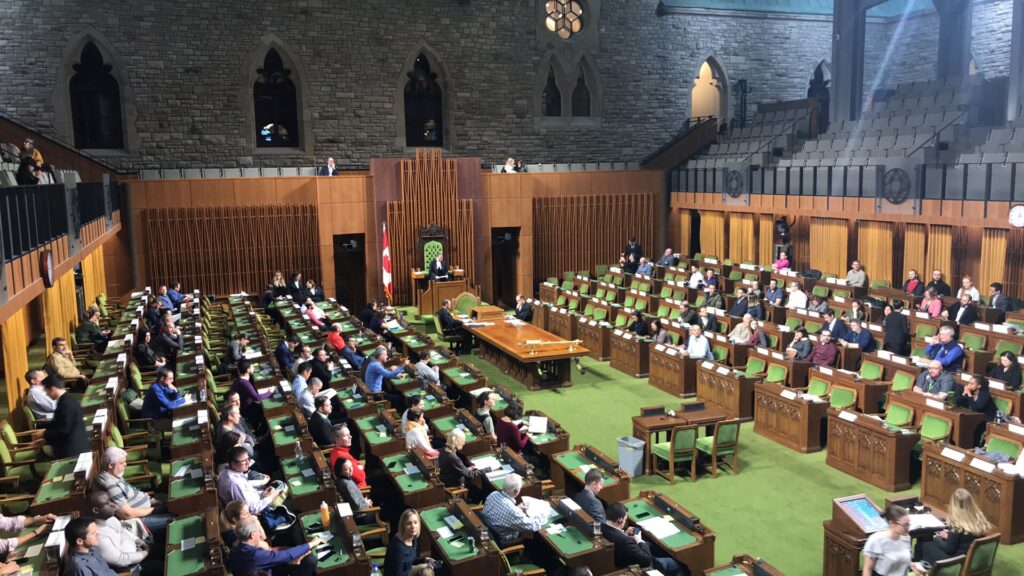
Dear Honorable Member of the House of Commons,
In recent 30 years, the Armenian portrayal of the tragic war-time clashes in Eastern Anatolia from spring 1915 through autumn 1916 as the first genocide of 20th century, has been blindly accepted by some 30 western parliament. Although Armenian’s this version of history is one-sided and steeped in prejudice, certain western parliaments perceived it as a complete history and an undeniable reality, without fact checking.
British Parliament is a remarkable exception among western powers that have recognized the so-called Armenian Genocide.
During the World War I years and afterwards, the British tried to use every opportunity to try and sentence every Turk they arrested for the “killing of local Christian people”. Still, they were not biased. Lord Curzon, the then Foreign Minister, admitted in the House of Lords:
“It must be owned the Armenians during the last weeks did not behave like innocent little lambs, as some people imagine. The fact is they have indulged in a series of attacks and proved blood-thirsty people.”
The Times, on March 19, 1920, gave an account of these blood-thirsty atrocities…
As the country that knows best what happened in Eastern Anatolia during World War I, Britain has undeniably declared till now with realism, and above all, with integrity and credibility that the events of 1915-1916 cannot be described as genocide
In late 1990s, when Western parliaments were recognizing Armenian genocide claims, the UK was also asked to do the same. British Spokesperson of Foreign and Commonwealth Affairs Baroness Ramsay of Cartvale rejected such demand in a speech dated 14 April 1999 delivered on behalf of the British government:
“…in the absence of unequivocal evidence to show that the Ottoman administration took a specific decision to eliminate the Armenians under their control at the time, British governments have not recognised the events of 1915 and 1916 as ‘genocide. …we do not believe it is the business of governments today to review events of over 80 years ago with a view to pronouncing on them… These are matters of legal and historical debate.”
The Armenian genocide lobby maintained its pressure, ultimately resulting in the Armenian genocide allegations being addressed during a Holocaust commemoration ceremony held in London on 27 January 2001.
In a press conference held in Ankara on 22 January 2001, Britain’s Beverley Hughes, then parliamentary under-secretary of state in the department of the environment, transport, and the regions, stated that only the Holocaust would be addressed during the ceremony and made the following declaration in Istanbul:
“A while ago, the British government reviewed evidence put forth on the Armenian allegations and examined documents on the events of 1915-1916. The decision is that these events do not correspond to what is defined as genocide by the UN. This is the attitude of the British government, and this will never change.”
In a response to a question on this matter, the then Parliamentary Under-Secretary of State at the Foreign and Commonwealth Office Baroness Scotland told the House of Lords on 7 February 2001:
“The Government, in line with previous British Governments, have judged the evidence relating to events in eastern Anatolia in 1915-1916 not to be sufficiently unequivocal to persuade us that these events should be categorized as genocide as defined by the 1948 UN Genocide Convention.”
Here the million-dollar question is to be answered; “What evidence was judged, and which documents were examined by the British governments?”
“Malta Tribunal” of 1919-1921, conducted by Britain’s highest legal prosecution authority, Attorney General for England, and Wales in London is the answer.
It goes without question that the British Attorney General’s ruling of July 29, 1921 corresponds to a “judgement of non-prosecution” which means, “there is no legal evidence to support the Armenian massacre claims, so there is no legal basis to file or bring a lawsuit.”
Malta Tribunal is the historical and judicial fact that about the Armenian allegations and this cannot be discredited by prejudiced political or legislative decisions.
UluçGürkan
Uluç Gürkan
Lecturer in Politics
- Deputy Speaker-Turkish Grand National Assembly/TGNA (1995-1999)
- Vice President-Parliamentary Assembly of the Council of Europe/PACE (2000-2002)
- Vice President–Parliamentary Assembly of the Organization for Security and Co-operation in Europe/OSCE-PA(1992-1995)
- Head of the Turkish Delegation-Parliamentary Assembly of the Western European Union/WEU-PA (1999-2002)
Member- Turkish Grand National Assembly/TGNA (1991-2002)
Middle East Technical University and Ufuk University (2003-….)
www.ulucgurkan.net – www.twitter.com/Uluc_Gurkan
[email protected] – [email protected]
0090 312 4198777 – 0090 532 2180758

Leave a Reply